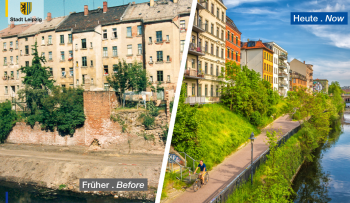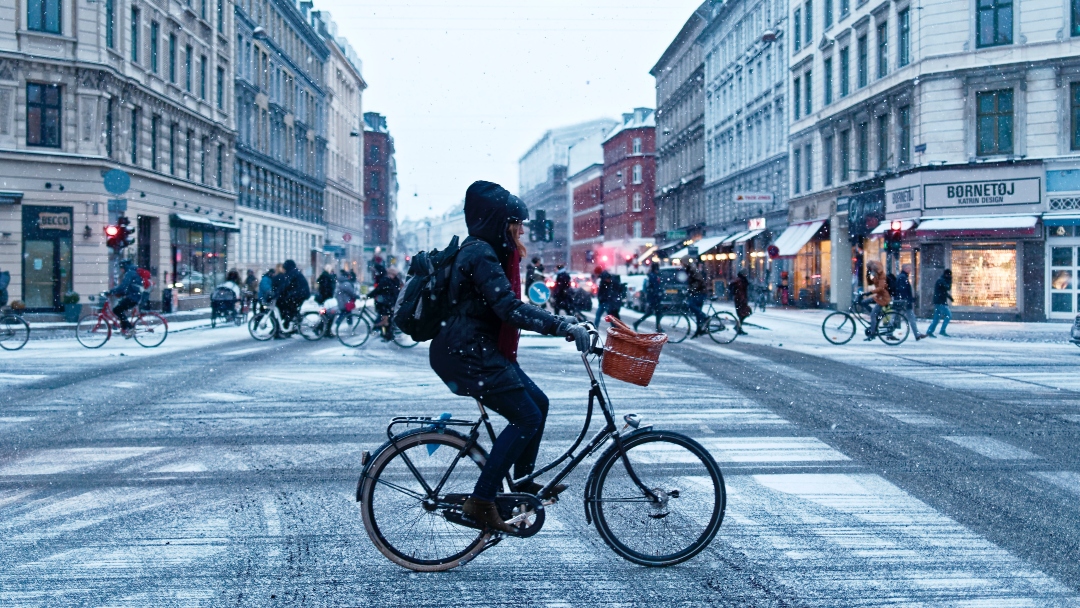
Best of 2022: Top 10 ECF news articles
Time to leave 2022 behind us with an overview highlighting the best and most read ECF articles of the year.
Another amazing year for cycling comes to an end and it’s our little tradition to share a list of the best and most-read articles of the last 12 months. It’s our way of looking back at the past year and reviewing the most important topics and achievements that happened.
Your favourite articles this year incorporated topics ranging from advocacy, studies, campaigns, and news from the cycling world.
Let’s explore them out together.
1. Velo-city 2023: Leipzig wins bid to become host city of the world cycling summit next year
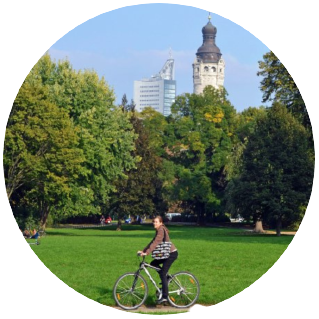 Earlier this year we announced that the City of Leipzig would host Velo-city, the world cycling summit, in 2023. The upcoming annual conference will offer an amazing opportunity for cycling community to experience a fascinating city that reinvented itself over the years, from being an open-cast coal mining city to a vibrant, liveable, and cycle-friendly city.
Earlier this year we announced that the City of Leipzig would host Velo-city, the world cycling summit, in 2023. The upcoming annual conference will offer an amazing opportunity for cycling community to experience a fascinating city that reinvented itself over the years, from being an open-cast coal mining city to a vibrant, liveable, and cycle-friendly city.
Read the full article here.
Buy your tickets for Velo-city 2023 here.
2. Cambio cycle network: Milan plans a real change towards more active mobility
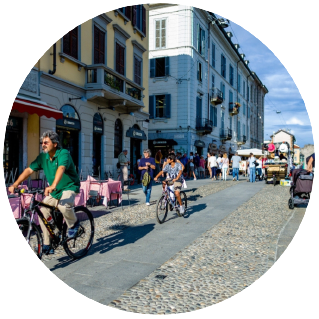 An important challenge for the Metropolitan City of Milan was to approve the Cambio (To Change, in English) cycling mobility plan. The project envisages the construction of an additional 750 km of cycle paths by 2035, connecting the entire city and its surroundings. Cambio's goal is to reach 20% of total trips by bicycle.
An important challenge for the Metropolitan City of Milan was to approve the Cambio (To Change, in English) cycling mobility plan. The project envisages the construction of an additional 750 km of cycle paths by 2035, connecting the entire city and its surroundings. Cambio's goal is to reach 20% of total trips by bicycle.
3. New survey: Majority of Germans willing to use public transport or bicycles instead of their car
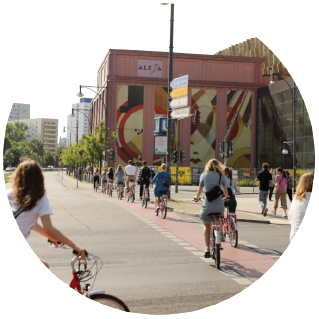
There was also good news in Germany, where a local survey showed that most Germans (54% of the participants) would consider using bicycles and public transport instead of cars.
What do the Germans need to make this a reality? Better access to cycling infrastructure, rental bikes, and secure parking.
Find out more data here.
4. New studies, new plan: Brussels aims even higher after cycling grows by 20% and road fatalities decrease
The de facto European capital has shown a remarkable increase in cycling of about 20% since 2020. Parallel to this increase, one year after the introduction of the 30 km/h speed limit in the city centre, a 50% decrease in road accidents has also been noted. These were certainly remarkable achievements for Brussels, which now aims higher and intends to launch new plans to create a larger low-traffic zone in the city centre.
decrease in road accidents has also been noted. These were certainly remarkable achievements for Brussels, which now aims higher and intends to launch new plans to create a larger low-traffic zone in the city centre.
Read the full article here.
5. How the bicycle transformed Ljubljana into a more liveable city
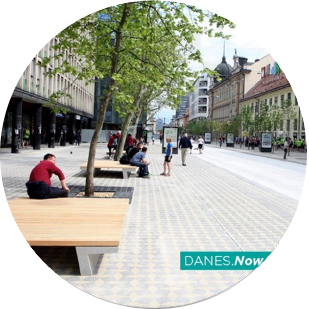 Ljubljana was the host city of Velo-city 2022. In this article, ECF took a closer look at how the introduction and implementation of cycling has transformed the capital of Slovenia into a more liveable city and a must-go for cyclists. Ljubljana had already made a move ten years ago when it decided to prioritise pedestrians and cyclists over motorised traffic.
Ljubljana was the host city of Velo-city 2022. In this article, ECF took a closer look at how the introduction and implementation of cycling has transformed the capital of Slovenia into a more liveable city and a must-go for cyclists. Ljubljana had already made a move ten years ago when it decided to prioritise pedestrians and cyclists over motorised traffic.
Read more about Ljubljana’s here.
6. European Bicycle Declaration: six European countries call for an EU cycling strategy
 On World Bicycle Day, six European countries (Austria, Denmark, Ireland, Luxembourg and the Netherlands) signed a European Cycling Declaration, based on ECF's EU Cycling Strategy from 2017, calling on the EU Commission to develop a “proper action plan at the EU level” to prioritise cycling.
On World Bicycle Day, six European countries (Austria, Denmark, Ireland, Luxembourg and the Netherlands) signed a European Cycling Declaration, based on ECF's EU Cycling Strategy from 2017, calling on the EU Commission to develop a “proper action plan at the EU level” to prioritise cycling.
Read the full article here.
7. World Bicycle Day 2022: What does cycling mean for our cities, planet and future?
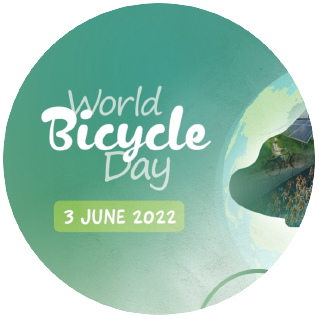
On World Bicycle Day, ECF highlighted how and why cycling can shape the future for the better. Not only there would be a significant improvement of the air in our cities but also a major reduction in traffic and noise pollution.
Not to mention CO2 emissions would also be significantly lower. Moreover, introducing cycling as a means of transport would allow us to be more independent of fossil fuels.
Read the full article here.
8. United Nations: New resolution urges countries to promote everyday cycling
 The United Nations spoke out in favour of the bicycle as a resolution for sustainable development and as an everyday means of transport, adding that countries around the world should integrate cycling into mobility, improve road safety and invest in safe cycling infrastructures to ensure sustainable development and reduce transport emissions.
The United Nations spoke out in favour of the bicycle as a resolution for sustainable development and as an everyday means of transport, adding that countries around the world should integrate cycling into mobility, improve road safety and invest in safe cycling infrastructures to ensure sustainable development and reduce transport emissions.
Read the full article here.
9. Exploring OpenStreetMap’s potential as a cycling infrastructure database
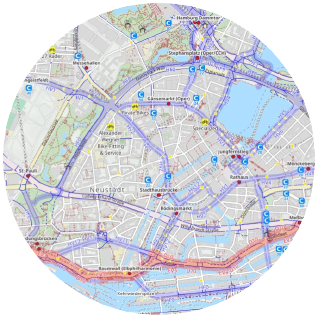 With this detailed analysis, ECF examined how OpenStreetMap could be useful in helping us to identify and learn about cycling infrastructure around the world. Interesting, isn’t it? The article analyses and compares similar systems and projects capable of mapping and covering larger areas worldwide.
With this detailed analysis, ECF examined how OpenStreetMap could be useful in helping us to identify and learn about cycling infrastructure around the world. Interesting, isn’t it? The article analyses and compares similar systems and projects capable of mapping and covering larger areas worldwide.
Read the full article here.
10. Lean, green, money-making machines: A comparative breakdown of the financial benefits of bicycle ownership
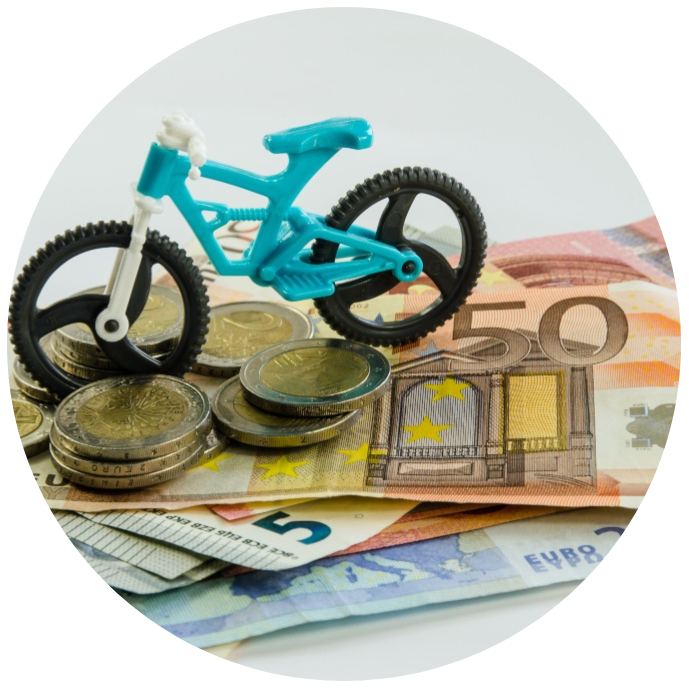 Have you ever stopped to think about how much money you would invest in a car per year? Well, we did. In our comparative analysis we found out an investment of about €13,000 per year, whereas private ownership of a bike can be 14 times cheaper compared to owning a common Opel Corsa.
Have you ever stopped to think about how much money you would invest in a car per year? Well, we did. In our comparative analysis we found out an investment of about €13,000 per year, whereas private ownership of a bike can be 14 times cheaper compared to owning a common Opel Corsa.
Read the full article here.
Regions:
Contact the author
Recent news!
Upcoming events
Contact Us
Avenue des Arts, 7-8
Postal address: Rue de la Charité, 22
1210 Brussels, Belgium



